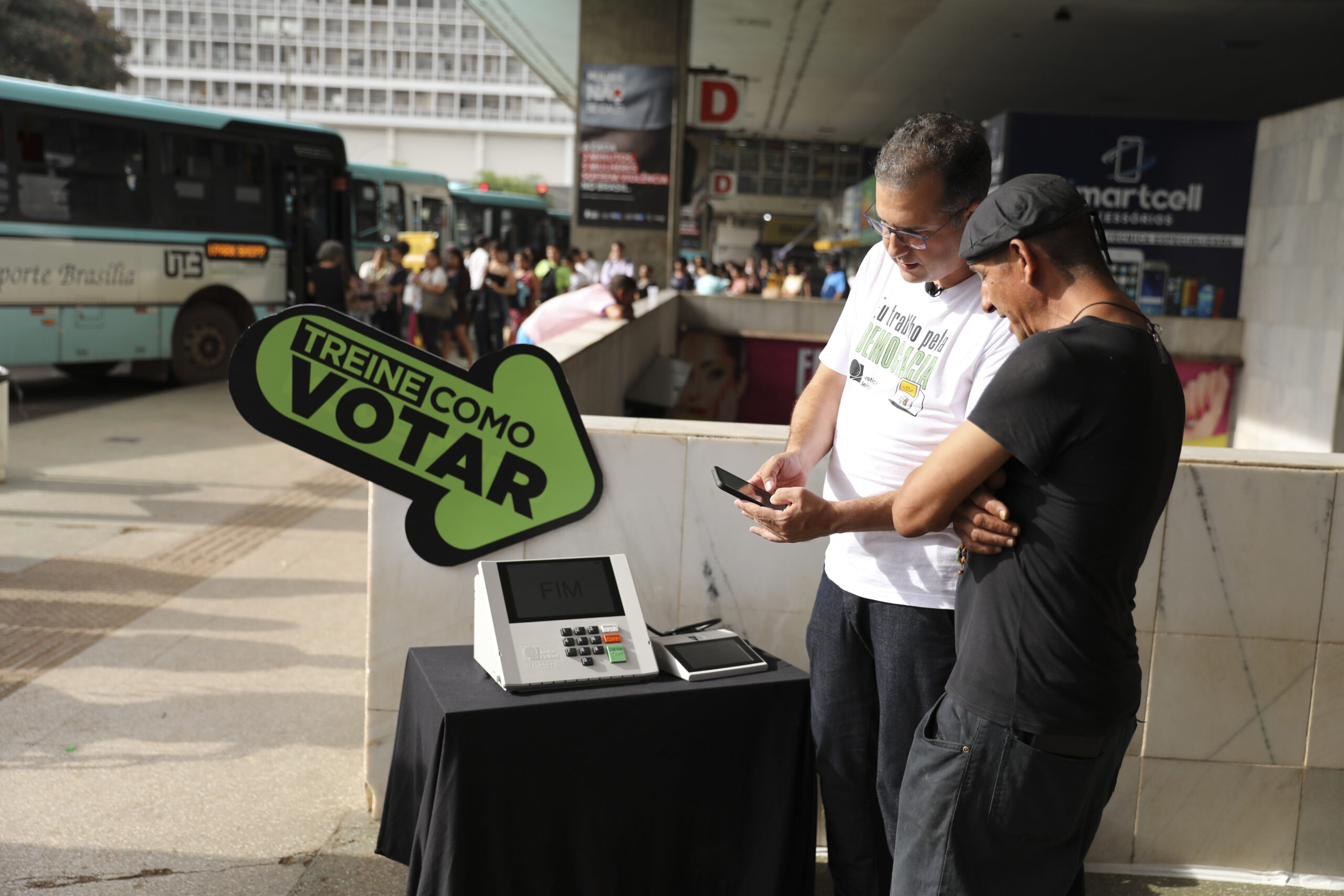By Alice de Souza
Brazilians will be voting in municipal elections in October, the first polls to be held since former president Jair Bolsonaro was banned from holding office for eight years after judges ruled he had spread disinformation about Brazil’s electronic ballot boxes. Observers see the upcoming elections as a test of voters’ trust in electronic voting machines (EVMs).
Questions about and criticisms of electronic voting have been voiced in other countries, such as India and the US, two of the 10 countries that will be using electronic ballot boxes in elections this year, according to the International Institute for Democracy and Electoral Assistance (International IDEA).
In Brazil, around 153 million voters will cast their ballots through EVMs, with counts expected to be ready three hours after polling stations close. Despite their efficiency in providing results, the system has been subject to disinformation, including from the former president who claimed they were rigged against him. Although Brazil’s Supreme Electoral Court (TSE) censured Bolsonaro for making false claims, a survey published by the Genial/Quaest Institute last May found that 35 per cent of Brazilians still believe the machines were rigged.
“The critics want to disqualify the electronic ballot box to disqualify the democratic process. No single fraud case has been proven in the 28 years they have been used. Independent institutions analyse all complaints,” said Giuseppe Janino, former secretary of information technology at the TSE and one of the Brazilian electronic ballot box creators.
The Brazilian machine’s security scheme includes digital signatures and cryptography. In addition, the software is open a year before the elections for auditing by 15 institutions, including political parties and the Federal Police.
Meanwhile, in India, there have also been disputes about ‘e-voting’ in this year’s elections, the results of which will be known on Tuesday. Although EVMs have been used in the country since 1982, a research institute published the Lokniti study ahead of the election that revealed concerns about the reliability of EVMs. The country’s Supreme Court rejected a petition against using the machines.
An Indian human rights lawyer, Rohit Sharma said: “I’m confident about the results, but there are some polling booths and rooms where EVMs are malfunctioning.”
Feature Image: Voters using an electronic ballot box. Luiz Roberto/Secom/TSE

